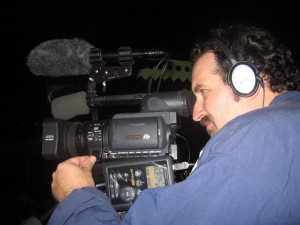MUS 358: Music in World Cultures
TR 8:30-9:50 AM Room: CLS 250 + Discussion Section
Beyond humanly organized sound, music is a tool to think with. The different ways in which humans use and talk about music can teach us much about each other. In this class, we will examine music-related practices from cultures associated with three different regions of the world (West Africa, China, Hispanic Caribbean). You will learn how people raised in these cultures produce and perceive these musics as well as what concepts scholars have developed to understand these expressions more generally. Beyond exposing you to musics that you may not be familiar with, my goal is for you to apply the concepts you learn here to think critically about the multiple cultural performances you experience in your own lives. This course fulfills the IC (International Cultures) Multicultural Requirement.
Lau, Frederick. 2008. Music in China. Oxford University Press: New York.
Moore, Robin. 2010. Music in the Hispanic Caribbean. Oxford University Press: New York.
Stone, Ruth. 2005. Music in West Africa. Oxford University Press: New York.
MUS 407/507: Ethnographic Techniques for Music-Dance
M 2:00-4:30 PM Room: Collier House 103

Doing fieldwork has long been considered one of the defining characteristics of ethnomusicology, although where “the field” is and how a researcher represents it has changed over time. This class takes a “nuts-and-bolts” approach to ethnography, with special emphasis on the issues that arise when one’s focus is expressions of music and dance. Each class meeting will be divided into two parts: the first part being a discussion of certain ethnographic issues; the second a workshop on practical skills or a group activity. While the class is taught from an ethnomusicological perspective, students in a number of disciplines will find learning about techniques like interviewing, transcription, writing and coding field notes, and representing culture through multimedia useful. Graduate students participating in the class will be assigned additional readings, class preps, and more intensive writing projects.
Murchison, Julian. 2009. Ethnography Essentials: Designing, Conducting, and Presenting Your Research. Wiley.
Seeger, Anthony. 2004. Why Suya Sing: A Musical Anthropolgy of an Amazonian People. University of Illinois Press.